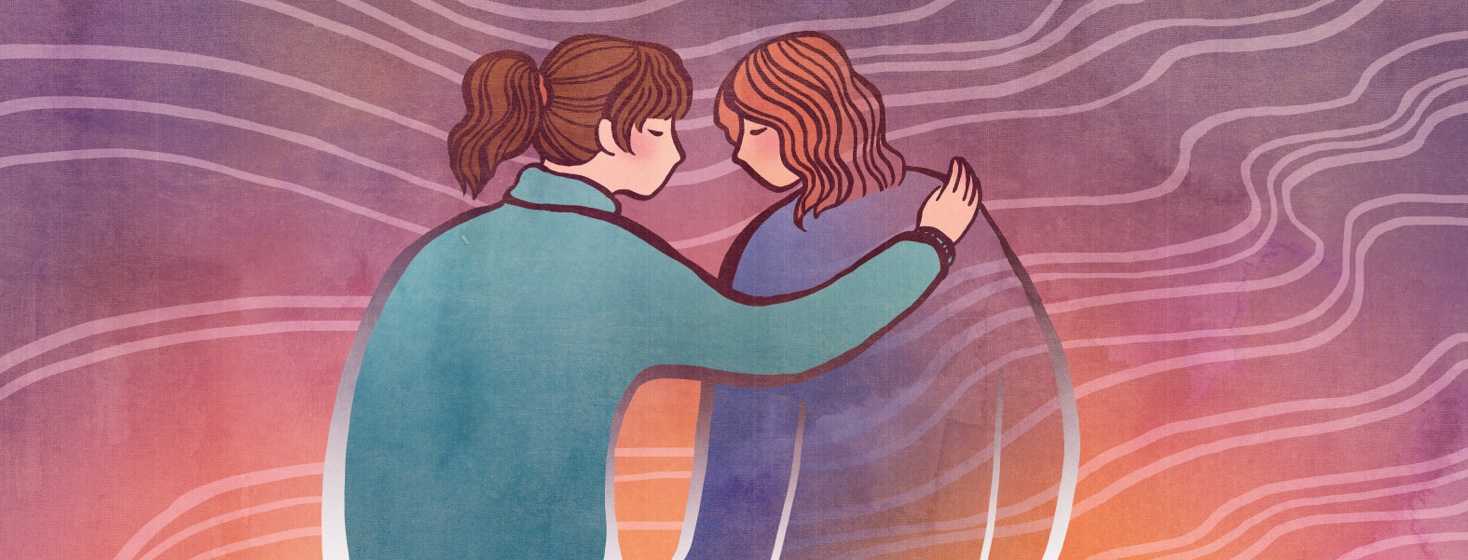Learning to Let Go of Control and Go with the Flow
I looked at Lynette, who sat silently beside me. After a life of starring in musicals and operas, it was natural for her to remain in control and centered in almost any situation.
But this was the worst-case scenario. When your doctor says you or your loved one has cancer, there is no appropriate or inappropriate reaction. Even no reaction is a reaction.
My breathing nearly stopped, and Lynette put her hand over mine and gave me one of her gentle smiles. Then, she looked back at the oncologist, the young man who would eventually come to feel like a member of our family.
What to do next
“What do we do next?” She asked, with not a trace of a shaky voice, or tears in her throat, or panic on her face.
Meanwhile, I heard the words of T. S. Eliot racing through my mind: "This is the way the world ends. This is the way the world ends."
Thus began our long, nearly five-year battle with breast cancer, and our lesson in submission and accepting that we had no control of this thing.
The knowing
When Lynette noticed a dimpling under her right breast, she knew what it was. Only a few years earlier, her mother lost her fight against the same kind of cancer. Knowing she was at high risk, Lynette faithfully went in for her yearly mammograms, and she and our family doctor kept close watch.
But this came up so quickly, it surprised everyone who knew her. She had a biopsy done and then we went through an excruciating two-week wait to get the results. Lesson two is letting go of imagined control.
While I kept on my rose-colored glasses, Lynette kept telling me she knew it was cancer. In fact, I was angry at her for being so negative, but inside, I knew that she knew. She was always right about everything. She had an uncanny sixth sense that, through the years, I'd come to rely on. But this time she was wrong. She had to be wrong. I told her she was wrong, as if just saying it would prove me right for a change. But she knew.
Cancer through COVID-19
No matter what her myriad doctors and nurses told us, we had no idea of the potholed road that lay before us. Our life changed from music, parties, and planning a trip to London to a mind-numbing repetition of doctors, waiting rooms, procedures, surgeries, and bad news. When we weren't doing all that, we stayed home.
Then Covid hit and our isolation was complete. In fact, when we were told to quarantine, I was a bit relieved. Oh, we still had to make all the medical rounds, but we didn't go anywhere and nobody but a couple of friends came to visit. Then, we both tested positive.
Fortunately, it was a mild strain and we both got through it relatively unscathed, except that it left Lynette with crushing fatigue and a thick brain fog that lingered for the rest of her life.
I know it didn't help her fight the disease, chemotherapy, and radiation treatments. Besides all this, her three children were trying to cope like the rest of her family. It didn't seem fair that she had to carry so many weights.
Letting go
It wasn't easy, but when the cancer took a turn and we began talking about all we had to be grateful for and counting our blessings. It didn't make the cancer go away, but it gave us a new outlook. That old, scary road turned into a river.
When you feel the river pulling you under,
Go belly up and float.
This was probably the hardest lesson we learned, but by accepting that we had no control over cancer, we gained a sense of calm that lasted until she passed away. It made caregiving easier for me and Lynette found it easier to accept my care without feeling guilty.
We laid down our control and felt a peace that got us through the devastation of being diagnosed with MBC.
Facing the End
Because she'd learned acceptance so completely, her passing was serene. It helped me be there for her and not locked onto my own feelings of grief and loss. She died smiling. People always said they loved her smile, and it actually made me fall in love with her. It was a sweet smile, but her last was the most beautiful of all.
It's hard to face these things, I know. There are all kinds of experts who can help, but it was the honesty with each other that made it possible to face everything we encountered on our journey down the river. Being a same-sex couple, we'd always insisted on living authentically and not closeting ourselves to the outside world. It was the same authenticity that made our transition into the sea easier to accept.

Join the conversation